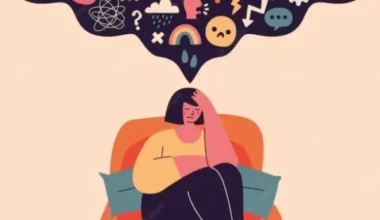You may have heard people refer to you as bipolar in times when you had high emotional tantrums. But does that really mean you are bipolar? If not, what exactly does being bipolar mean and how can it be treated? This article will give you an in-depth view of what bipolar is, some celebrities with bipolar disorder, and how they have managed to stay at the top of their game despite the diagnoses.
Key Takeaways
- Bipolar disorder is a mental health disorder characterized by episodes of extremely high moods and followed by periods of low or depressive mood.
- Some of the most well-known celebrities with bipolar disorder are Bebe Rexha, Demi Lovato, Ted Turner, Vivien Leigh, and Vincent van Gogh.
- Individuals with bipolar experience two distinct episodes with different symptoms; the manic episode and the depressive episode.
- Bipolar is genetic. However, further research suggests that most cases of bipolar are single cases. This means that it is rare to see double cases of bipolar in a family.
What Is Bipolar Disorder?

People often throw the ‘bipolar’ word around to describe people when they have emotional tantrums. However, there is more to being bipolar than just an emotional tantrum. Bipolar disorder is a mental health disorder characterized by episodes of extremely high moods and followed by periods of low or depressive mood. Notably, in between these extreme moods, individuals with bipolar experience episodes of neutral mood too. Beyond affecting a person’s attitudes, bipolar disorder equally affects an individual’s energy level, sleep patterns, and attention span. Bipolar is pervasive because it remarkably affects all of a person’s life (work, relationships, and school).
Celebrities With Bipolar Disorder

There is a huge misconception that anyone with a ‘disorder ’automatically leads an abnormal life. While there are disorders that cause severe impairment in a person’s functionality, there are many disorders where people live good lives, and apparently, bipolar ranks as one of these disorders.
Although the condition may have presented a significant problem for them, many famous people and high-profile individuals have received a diagnosis of bipolar disorder and still have managed to make names for themselves in society. While some celebrities who have bipolar disorder haven’t been so open about their diagnoses, many of them have been open about their journey with bipolar disorder. Here are some of the most well-known celebrities with bipolar disorder.
- Bebe Rexha
- Demi Lovato
- Kurt Cobain
- Ted Turner
- Vivien Leigh
- Sinead O’Connor
- Winston Churchill
- Kanye west
- Vincent van Gogh
- Mel Gibson
- Ashley Nicolette Frangipane
- Catherine-Zeta Jones
Symptoms of Bipolar

Individuals with bipolar experience two distinct episodes with different symptoms. These episodes include the manic episode and the depressive episode. People experience these episodes differently. While some persons may have frequent episodes of mania and depression, others may go months and years without a single episode.
Other general symptoms of bipolar include changes in sleep patterns and energy levels of individuals. Let’s dissect the symptoms of each mood episode.
Manic Episode

A manic episode refers to a period where a person has an intense burst of energy. Generally, this extreme energy level should be out of character to the person in question
Some signs of a manic episode include:
- Distorted or disorganized thinking and speech
- Easily distracted
- Restlessness
- Disorganized behaviors
- Insomnia or decreased need for sleep
- Impulsive habits
- False feeling of powerfulness
A person with bipolar disorder may most likely experience most, if not all, of the above symptoms during a manic episode. On rare occasions, they may equally have psychotic tendencies. i.e., psychosis-related symptoms such as hallucination and delusion. It is often advisable to check a person who is experiencing manic episodes into a hospital for stability so as to avoid hurting themselves or the people around them.
Depressive Episodes

For the second phase of bipolar disorder, we have a depressive mood. One prominent feature of depressive episodes is a strong feeling of grief and despair. Here, the individual loses the surge of energy present in the manic stage. Additionally, these symptoms show a significant change in a person’s usual behavior and would impair their daily life functioning. Other symptoms of depressive episodes include
- Severe feelings of sadness and despair
- Loss of interest in once pleasurable activities
- Feeling of worthlessness
- Lack of concentration
- Change in sleep and eating pattern
- Frequent thoughts of suicide
Sometimes, a bipolar individual can have episodes with mixed features. In this case, the individual experiences manic and depressive episodes simultaneously. If you are wondering how this is possible, here’s how; The person could feel full of energy but at the same time, sad and full of despair. Note that, bipolar does not affect every person on the same level and while some persons may have it mild, others may experience more severe manic and depressive symptoms.
Causes of Bipolar Disorder

Like most mental health or mood disorders, no one thing has been identified to be the outright cause of bipolar disorder. In other words, the causative agent or factor could be a result of any one factor or combination of several factors. These factors include:
Anatomy and Physiology of the Brain
Some researches show that the function and structure of the brain of bipolar patients differ significantly from those of people without. It is however unclear if this brain structure is a cause or effect of bipolar.
Environmental Factors
There are persons who are vulnerable to some disorders. When exposed to some environmental factors such as stress, drugs, lack of sleep, etc., they may trigger these disorders.
Biological Factors
Beyond the structure and function of the brain of an individual, other biological factors such as an imbalance in the brain chemicals may be a triggering element.
Is Bipolar Genetic?

As a matter of fact, bipolar is genetic. Despite other risk factors capable of causing bipolar, researchers have found out that about 80-90% of people with bipolar have a first-degree relative with bipolar or at least depression. Despite the fact that it is obvious that bipolar disorder is hereditary, the exact composition of the gene that causes it remains a mystery.
Interestingly enough, notwithstanding the high degree of hereditary of this disorder, further research suggests that most cases of bipolar are single cases. This means that it is rare to see double cases of bipolar in a family.
How Can People Lead Everyday Lives With Bipolar Disorder?

When a person is diagnosed with a mental disorder, they experience intense fear and dread that their life is over. A panic attack may even occur in certain people. This is especially true for persons who have been diagnosed with bipolar disorder. While it is normal to be scared of the outcome of any illness, most especially terminal illnesses, it is immensely important to know that people lead pretty normal lives with bipolar disorder.
Of course, this begs the question ‘What is a normal life? and while there are no concrete or definite ways to define ‘normal’, leading a normal life in this context simply means living with the diagnosis of bipolar disorder and accomplishing all that you want to. The number of persons in the entertainment industry and other high-profile people who have been diagnosed with bipolar disorder is a strong indication that one can live and live well with the disorder. Of course, this does not negate the difficulties that come with the condition; rather, it emphasizes that, despite these difficulties, you can still live your best life.
To be able to achieve this, however, individuals with bipolar need to be mindful and engage in effective stress management. Eating healthy and exercising daily are some of the ways bipolar patients can maintain a healthy lifestyle. Having a good sleep schedule and allowing your brain to rest is equally essential for persons with bipolar.
Additionally, being mindful of warning signs and understanding your emotions is very important to live well with bipolar. this of course means that persons with bipolar need to have a high level of self-awareness to be able to detect the slightest changes in mood, and behaviors such as eating patterns, sleeping patterns, and sexual arousal.
When a change in any of these is detected, you should assess yourself and see your healthcare specialist.
Can I Treat Bipolar?

Bipolar is a lifelong illness and therefore a complete treatment is not feasible. However, there are recommended treatments to help manage bipolar effectively. Psychotherapy and medicines are the most commonly used treatment types.
Psychotherapy
This has been found to be an effective treatment for so many mental disorders, bipolar inclusive. it is simply a talking therapy where a licensed and professional psychotherapist helps their patients explore themselves, mentally and behaviorally. The therapist equally helps patients understand what they are going through and effective thought processes and behaviors to alleviate frequent occurrences.
While psychotherapy alone is not effective in alleviating bipolar, it is an indispensable part of the treatment of bipolar
Medications
This is the cornerstone of bipolar disorder treatment. These medications help correct imbalanced brain signaling. And are usually referred to as mood stabilizers. They include drugs such as lithium and carbamazepine. Other remedies include anti-depressants and antipsychotic drugs. Different medications have varied effects on different people, and at times a person may require a combination of two or more medications to be effective. For this reason, it is rudimentary that one knows the best medication that will work on them before embarking on a routine. Speaking with a healthcare provider is crucial to fully understand this.
It’s worth noting that before a medication is stopped, you should consult with your healthcare provider. They will provide you with the best and most suitable procedure to gradually stop a medication. Abrupt and sudden stops of drugs can be dangerous and even fatal.
What Happens if I Don’t Treat Myself if I Have a Bipolar Diagnosis?
Being a chronic disorder, it can be very difficult to continue to prioritize your medications after a while. And the thoughts of what could be the outcome of not taking drugs anymore could kick in. Also, because there are periods of neutral mood, you could be tricked into believing that mania or depression won’t kick in again. Unfortunately, this is not the case and once you have been diagnosed with bipolar, you need to continually prioritize your medications and any other form of treatment as leaving this untreated will only aggravate the symptoms. Leaving bipolar untreated will have you having more severe symptoms at every recurrence. This will equally significantly affect the general quality of life.
Conclusion
Conclusively, understanding bipolar disorder is essential to dispel misconceptions and foster compassion and support for those affected by this condition. The causes of bipolar disorder remain multifactorial, involving a combination of genetic, environmental, and neurobiological factors.
Recognizing the symptoms of bipolar disorder is crucial for timely intervention and management. The disorder can manifest with periods of intense highs (mania) and profound lows (depression), often leading to challenges in personal relationships, work, and overall well-being. It is essential to emphasize that living a normal life with bipolar disorder is absolutely possible with proper treatment and support and this is evident in the number of celebrities and high-profile persons living with bipolar disorder today.






